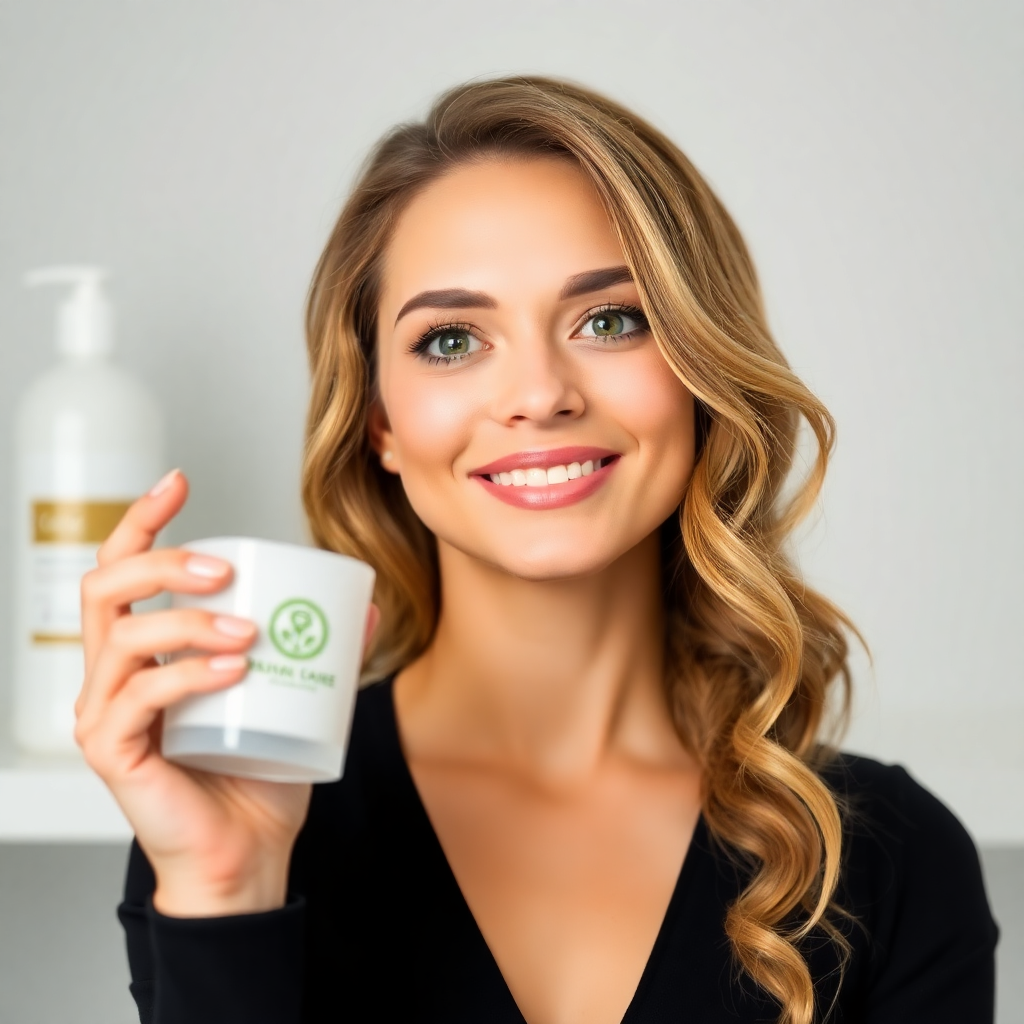Top 10 Health and Wellness Products to Try in 2025
The Hooga Grounding Mat has gained significant popularity among individuals seeking alternative and natural wellness solutions.
Grounding, also known as “earthing,” refers to the practice of connecting with the Earth’s natural energy to enhance well-being. With its unique design and numerous health benefits, this mat has become a must-have item for those interested in improving sleep, reducing pain, boosting energy, and promoting overall balance.
What is the fastest growing wellness industry?
The fastest-growing wellness industry is mental health and wellness, with a particular focus on mental health technology, mindfulness, and stress management solutions. This sector has seen significant growth in recent years, especially as awareness of mental health issues has increased globally. However, there are several key areas within the wellness industry experiencing rapid expansion:
Mental Health and Wellness
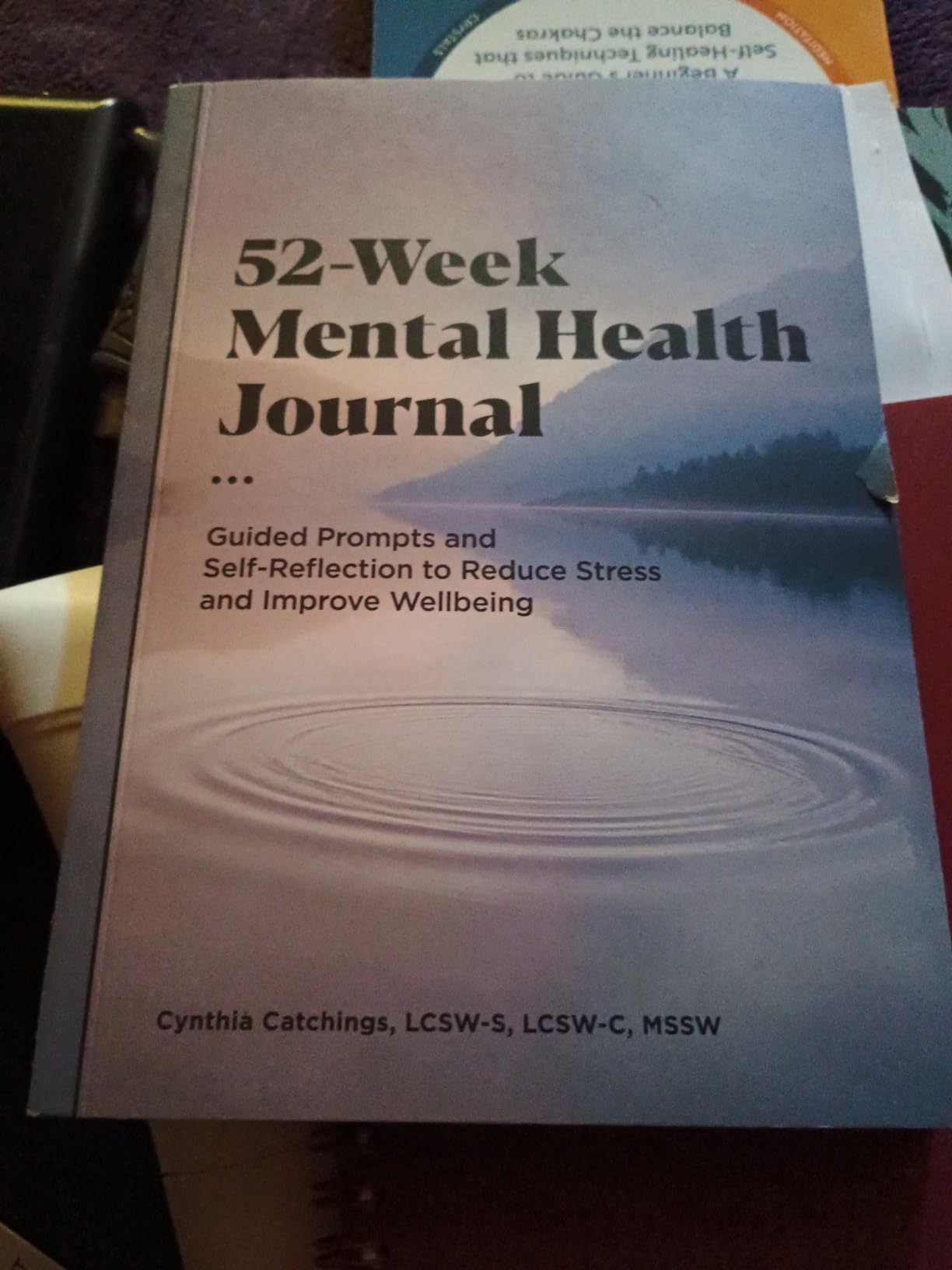
- Digital Mental Health Solutions: Apps and platforms that provide therapy, counseling, meditation, and mental well-being services are growing exponentially. Popular apps like Headspace, Calm, and BetterHelp are leading the charge by offering mental health support directly to consumers, often in the comfort of their homes.
- Teletherapy and Online Counseling: The rise of online therapy platforms has made professional mental health care more accessible. Services like Talkspace and BetterHelp offer virtual therapy with licensed professionals, allowing for greater flexibility and reduced stigma.
- Mindfulness and Stress Reduction: Practices such as meditation, yoga, and breathing exercises are becoming mainstream, with a growing demand for guided content, digital classes, and wellness retreats that focus on stress relief and mental clarity.
Fitness and Health Tech
- Wearable Fitness Devices: Devices like the Apple Watch, Fitbit, and Oura Ring have driven a massive interest in personal health monitoring. These devices track metrics like heart rate, sleep patterns, calories burned, and physical activity, offering users more insight into their overall health and wellness.
- Virtual Fitness: With the rise of the COVID-19 pandemic, virtual fitness classes boomed. Platforms like Peloton, ClassPass, and Zwift are making it easier for individuals to maintain their fitness routines from home with live and on-demand workout classes, including yoga, cycling, strength training, and more.
- AI-Powered Fitness Programs: Artificial intelligence is transforming fitness with personalized workout and nutrition plans. AI-driven apps and devices analyze data from users and provide customized health plans that adapt over time.
Nutritional Wellness
- Plant-Based and Sustainable Foods: Plant-based diets are becoming more popular, leading to a surge in demand for plant-based food products. Companies like Beyond Meat, Impossible Foods, and Oatly have revolutionized the food industry with products that cater to people seeking alternative protein sources or who want to reduce their environmental impact.

- Supplements and Functional Foods: There is a rising interest in supplements like probiotics, adaptogens, vitamins, and superfoods (such as spirulina, turmeric, and matcha). These products are marketed for their ability to improve immunity, energy, mental focus, and overall wellness.
- Personalized Nutrition: The use of genetic testing, microbiome analysis, and other technologies to provide personalized nutrition plans is growing. Companies like InsideTracker and DNAfit help individuals make dietary choices based on their unique genetic makeup.
Sleep and Recovery
- Sleep Tech: The sleep industry is rapidly evolving, with devices like the Oura Ring, Sleep Number beds, and Eight Sleep mattresses offering sleep tracking and improving sleep quality. These products monitor sleep patterns, heart rate variability, and breathing, helping people optimize their rest.
- Recovery Tech: Post-workout recovery products, such as massage guns (e.g., Theragun), cryotherapy, infrared saunas, and compression therapy devices, are experiencing significant growth. These tools help with muscle recovery, relaxation, and reducing inflammation.
Beauty and Skin Wellness
- Clean Beauty: The clean beauty movement, which focuses on products free from harmful chemicals, has gained significant traction in recent years. Consumers are becoming more educated about what goes into their skincare products, leading to an increase in demand for organic, natural, and sustainable beauty products.
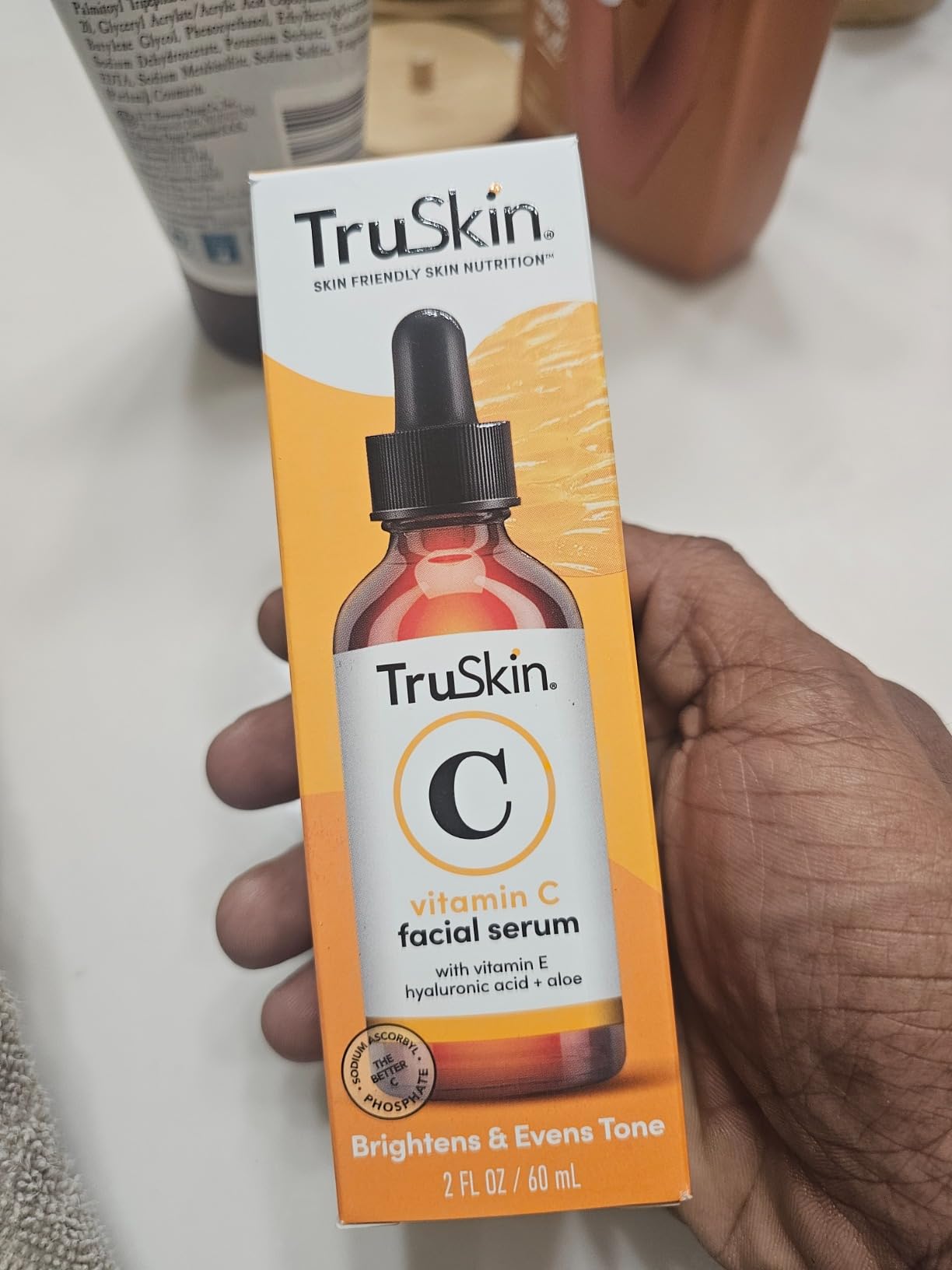
- Anti-Aging Solutions: The global desire for youthful skin and longevity is contributing to the rise of anti-aging products and treatments. Brands offering collagen supplements, retinol creams, and light therapy devices are growing rapidly.
- Personalized Skincare: Companies that offer personalized skincare solutions based on factors such as skin type, climate, and lifestyle are thriving. Brands like Curology and Proactiv provide tailored skincare regimens through online consultations.
Sustainable and Eco-Friendly Wellness Products
- Sustainable Wellness Products: As sustainability becomes an increasing priority, consumers are seeking eco-friendly products in the wellness industry. This includes reusable water bottles, eco-friendly yoga mats, and sustainable activewear.
- Green and Ethical Practices: The wellness market is embracing environmental sustainability, with many brands choosing eco-friendly packaging, using organic and responsibly sourced materials, and prioritizing ethical manufacturing practices.
- Eco-Tourism and Wellness Retreats: The travel industry’s intersection with wellness has led to the growth of eco-friendly wellness retreats, offering experiences like yoga, meditation, spa treatments, and fitness in sustainable, nature-based locations.
As consumers become more health-conscious and prioritize overall well-being, these sectors will continue to expand, fueled by innovations in technology, a greater understanding of holistic health, and a desire for sustainable, natural products. The wellness industry is not only growing in terms of products and services but is also evolving to meet the changing needs of individuals looking to improve both their physical and mental well-being.
Features of the Hooga Grounding Mat
- Material: Made from conductive carbon-infused vegan leather, the mat provides a durable and environmentally friendly surface. The carbon infusion allows for effective conductivity, ensuring that the mat performs optimally in grounding the user.
- Size and Dimensions: The mat measures 24×16 inches, offering enough surface area for use under desks or as a resting mat for your feet. It is also available in a 2-pack option, making it a good choice for those who want a matching set for different areas of their home or office.
- Cord Length: A 15-foot grounding cord is included, making it versatile for use in larger rooms or when you need flexibility in where you place the mat. The cord connects easily to a grounded electrical outlet, which is key for grounding to the Earth’s energy.
- Ease of Use: The mat is incredibly easy to set up. Simply unroll the mat, snap the grounding cord into place, and plug it into a grounded outlet. There’s no need for electrical power or batteries, as it simply channels the Earth’s energy through the grounding system.
- Durability: The Hooga Grounding Mat is designed for long-term use, with high-quality materials ensuring its resilience over time. Its carbon-infused vegan leather surface is both conductive and easy to maintain, requiring only a wipe with a damp cloth for cleaning.
- Portability: With its compact design, the Hooga Grounding Mat can be rolled up and transported easily. This makes it convenient for people who want to use it at home, in the office, or even while traveling.
- Safety: The mat is tested for safety, with a built-in resistance of 91,000 Ohms to ensure safe grounding practices. The product also includes instructions and a manual, along with a QR code that leads to an instructional video on how to test the mat’s conductivity.
Benefits of Grounding
Grounding is believed to have a variety of health benefits, which the Hooga Grounding Mat aims to deliver. These benefits are not always immediate but can accumulate with regular use. Here are some of the potential advantages:
- Improved Sleep: One of the primary benefits of grounding is its ability to improve sleep quality. The Earth’s negative charge is said to synchronize the body’s natural rhythms, making it easier to fall asleep and stay asleep.
- Pain Relief: Many users report a reduction in chronic pain and inflammation after using grounding mats. The mat may help reduce the body’s oxidative stress, which contributes to pain and discomfort.
- Reduced Stress: By connecting the body to the Earth’s natural energy, grounding is believed to reduce stress and promote relaxation. This may lead to improved mental clarity and a decrease in anxiety levels.
- Enhanced Energy Levels: Grounding can help improve circulation and reduce fatigue. By neutralizing free radicals in the body, users often feel more energized and refreshed.
- Better Overall Wellness: Grounding may also improve balance, posture, and immune function. Many people who use grounding mats experience a general sense of well-being over time, helping to enhance their physical and mental health.
User Experience
- First Impressions: Users are often impressed with the quality and simplicity of the Hooga Grounding Mat. The design is sleek and modern, and the mat feels soft yet durable. Unboxing and setting up the mat is straightforward, which is a big plus for customers who may be new to grounding.
- Comfort: For those who spend long hours sitting at a desk or working in an office, the Hooga Grounding Mat provides a comfortable surface for the feet. The mat is large enough to be used under desks but compact enough to be portable, making it perfect for a variety of settings.
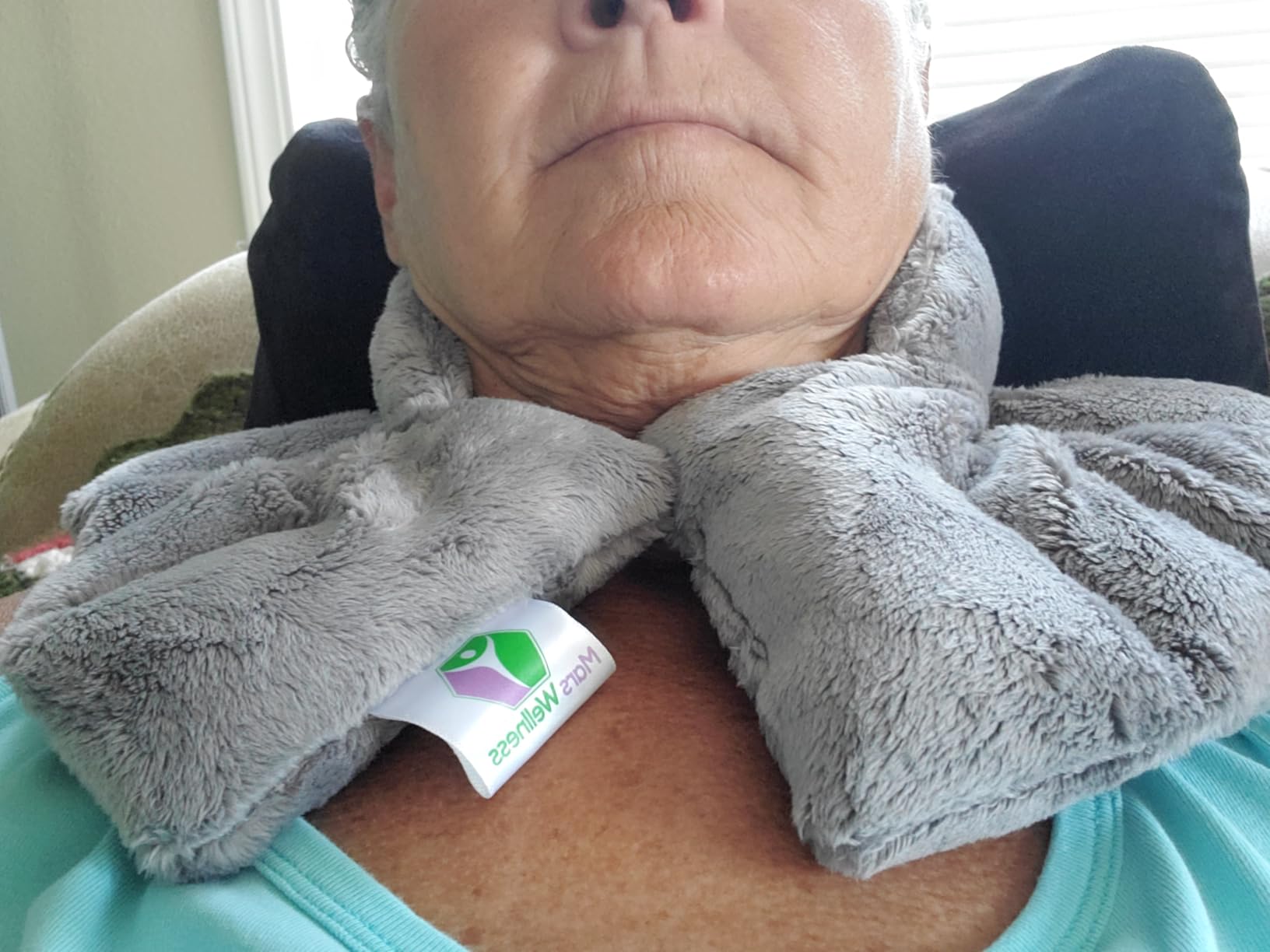
- Long-Term Use: While the benefits of grounding may not be immediately felt, many users report experiencing gradual improvements in sleep, energy, and stress levels after consistent use. Some users report feeling a slight tingling sensation upon first using the mat, which is a sign that the body is interacting with the mat’s conductive surface.
- Customer Feedback: The product currently holds an average rating of 4.1 out of 5 stars based on nearly 4,000 customer reviews. Most users express satisfaction with the mat’s quality and effectiveness, although some note that results may vary depending on the individual.
Best Use Cases
- At Home: Many people use the grounding mat in their living rooms, bedrooms, or home offices. It can be placed on the floor or under a desk to promote grounding during work hours.
- At the Office: For individuals who spend hours sitting at a desk, using the grounding mat as a footrest can provide a comfortable and therapeutic solution for reducing stress and fatigue.
- During Relaxation: Whether you’re watching TV or reading a book, grounding can be integrated into your relaxation time. Some people choose to lie on the mat or sit on it while enjoying leisure activities.
- In the Winter: Grounding outdoors may not be as easy during colder months, especially if you live in regions with harsh winters. The Hooga Grounding Mat offers a convenient indoor alternative for year-round grounding benefits.
How to Test the Mat
Testing the mat for conductivity and effectiveness is a straightforward process. Hooga provides an instructional video and manual to guide you through the process. Customers can test the mat with a multimeter to measure the body voltage and ensure proper grounding. This can provide peace of mind that the mat is working as intended.
Ideal Wellness Gift
Given its health benefits and simple setup, the Hooga Grounding Mat makes an excellent gift for anyone interested in wellness, stress relief, or alternative therapies. It’s a thoughtful present for birthdays, holidays, or special occasions, particularly for those who are recovering from physical stress, injury, or illness.
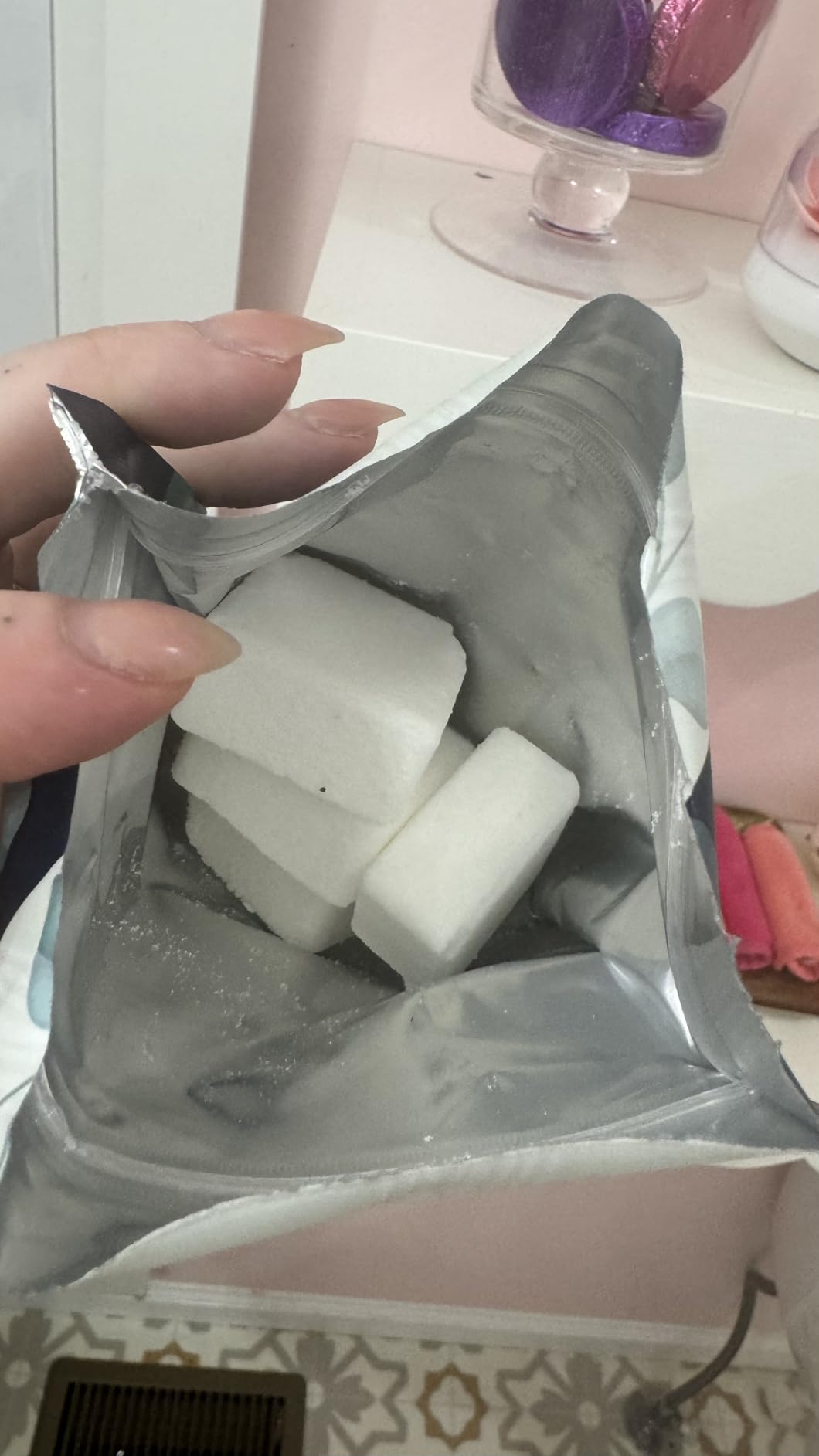
What health products sell the most?
The health products that sell the most are those that align with growing consumer interest in improving overall well-being, maintaining health, and preventing illness. The most popular health products are often related to fitness, nutrition, mental health, skin care, and preventative wellness. Here’s a deeper look at the top-selling health products across different categories:
Supplements and Vitamins
- Multivitamins: These remain among the top-selling health products because they offer a simple and effective way to fill nutritional gaps in the diet. Vitamins like Vitamin D, Vitamin C, B-complex vitamins, and multivitamins are particularly popular due to their benefits in supporting immune function, energy levels, and overall health.
- Probiotics: Probiotic supplements are growing in demand due to increased awareness of the importance of gut health. Probiotics promote healthy digestion, boost the immune system, and improve mood by balancing the gut microbiome.
- Omega-3 Fatty Acids: Omega-3 supplements, particularly fish oil or plant-based omega-3 sources (such as algae oil), are popular for their cardiovascular benefits and anti-inflammatory properties.
- Protein Powders: Whey, plant-based, and collagen protein powders are widely consumed, particularly among individuals focused on fitness, muscle recovery, or those seeking to increase protein intake.
- Adaptogens and Herbal Supplements: Supplements like ashwagandha, rhodiola, and turmeric are gaining popularity for their stress-reducing, energy-boosting, and anti-inflammatory benefits.
Fitness and Activity Trackers
- Wearable Fitness Devices: Devices like the Apple Watch, Fitbit, and Garmin are among the top-selling products in the wellness market. These devices track physical activity, heart rate, sleep patterns, and calories burned, helping users monitor their health and fitness progress.
- Smart Scales: Scales that track weight, body fat percentage, muscle mass, and other health metrics are also popular, as they provide insights into overall fitness and well-being.
- Fitness Equipment: Home fitness equipment like dumbbells, resistance bands, yoga mats, and exercise bikes (e.g., Peloton) have seen significant sales growth, particularly during the COVID-19 pandemic when more people opted to work out at home.
Mental Health and Stress Relief Products
- Meditation and Relaxation Apps: Apps like Headspace, Calm, and Insight Timer are top-sellers in the wellness industry, offering guided meditation, sleep stories, and stress-relief exercises that cater to the growing demand for mental health and mindfulness.
- CBD Products: CBD oils, gummies, topicals, and vapes have become increasingly popular for their potential to reduce anxiety, improve sleep quality, and alleviate pain.
- Aromatherapy Products: Essential oils and diffusers are popular for promoting relaxation, enhancing mood, and improving sleep. Essential oils like lavender, peppermint, and eucalyptus are frequently sold for their calming and therapeutic properties.
Sleep and Recovery Products
- Sleep Aids: Products that aid in sleep, such as melatonin supplements, weighted blankets, and sleep masks, continue to be popular, especially with the rise of insomnia and sleep-related issues.
- Mattresses and Bedding: High-quality mattresses, pillows, and bedding made with memory foam or natural materials are among the top-selling products in the wellness industry. Brands like Tempur-Pedic and Casper have gained significant market share due to their focus on improving sleep quality.
- Recovery Tools: Post-workout recovery products, like foam rollers, massage guns (e.g., Theragun), and compression therapy devices, are highly sought after by fitness enthusiasts looking to improve recovery times and alleviate muscle soreness.
Skincare and Beauty Products
- Anti-Aging Products: Skincare products that target aging concerns, such as retinol creams, collagen supplements, and eye serums, consistently top the sales charts. Consumers are increasingly focused on maintaining youthful skin and preventing signs of aging.
- Clean and Organic Skincare: Natural and organic skincare products that are free from harmful chemicals are in high demand. Brands that use ingredients like aloe vera, vitamin C, hyaluronic acid, and green tea extract are seeing consistent sales growth as more consumers opt for clean beauty.
- Sunscreens: With growing awareness of skin cancer and the importance of UV protection, sunscreens (particularly broad-spectrum sunscreens with SPF 30 or higher) are top-sellers year-round. Mineral sunscreens are also growing in popularity due to their environmental and health benefits.
Healthy Food and Drink
- Plant-Based Foods: The surge in plant-based diets has led to the rise of products such as plant-based meats (e.g., Beyond Meat, Impossible Foods), dairy-free milks (e.g., almond milk, oat milk), and vegan snacks. These products cater to both vegans and those adopting plant-based or flexitarian diets.
- Functional Beverages: Beverages with added health benefits, such as kombucha (for gut health), protein shakes, and adaptogenic drinks, are rapidly growing in the market. Functional waters, including those infused with electrolytes, CBD, and other nutrients, are also popular.
- Superfoods and Supplements: Products like matcha powder, spirulina, turmeric, chia seeds, and acai are in high demand due to their nutritional benefits and growing popularity in smoothies, juices, and health-conscious recipes.
Eco-Friendly Health Products
- Sustainable Wellness Products: Consumers are increasingly concerned about the environmental impact of their purchases. Products like reusable water bottles, eco-friendly yoga mats, and zero-waste personal care products (e.g., shampoo bars, bamboo toothbrushes) are rising in popularity.
- Organic and Fair-Trade Products: Organic food, beauty, and wellness products that are sustainably sourced and fairly traded are gaining traction as people align their purchasing decisions with their ethical values.
Personal Care and Hygiene Products
- Hand Sanitizers and Disinfectants: As hygiene has become more important, hand sanitizers, disinfecting wipes, and sprays are some of the best-selling products. Brands offering alcohol-based hand sanitizers have seen increased sales, especially post-pandemic.
- Oral Health Products: Electric toothbrushes, teeth whitening kits, and oral probiotics are also high in demand as consumers seek better ways to maintain dental health.
Frequently Asked Questions (FAQs) related to health and wellness products:
What are the most popular health and wellness products?
- Answer: The most popular health and wellness products include supplements (multivitamins, probiotics, omega-3), fitness trackers (Apple Watch, Fitbit), mental health apps (Headspace, Calm), sleep aids (melatonin, weighted blankets), skincare products (anti-aging creams, sunscreens), and plant-based foods (Beyond Meat, oat milk).
How do I know which supplements are right for me?
- Answer: It’s important to consider your individual health goals and consult with a healthcare provider before taking any supplements. Some may need to be tailored to specific needs, such as vitamin D for immunity, probiotics for gut health, or omega-3 for heart health.
Are natural supplements better than synthetic ones?
- Answer: Both natural and synthetic supplements can be effective, but natural supplements often come with fewer additives and are absorbed more efficiently by the body. However, synthetic supplements are often more accessible and affordable. It’s important to choose based on your health needs and preferences.
What is the best fitness tracker for beginners?
- Answer: For beginners, Fitbit or the Apple Watch are excellent options as they offer user-friendly interfaces, a wide range of features (such as heart rate monitoring, step counting, and sleep tracking), and provide insights into physical activity levels and overall health.
Can I rely on fitness trackers to accurately monitor my health?
- Answer: While fitness trackers are generally accurate, they may not always be 100% precise, especially for specialized measurements like heart rate or calories burned. However, they are useful tools for tracking trends in activity, sleep, and heart rate, which can help you improve your fitness over time.
How can CBD products help with my wellness?
- Answer: CBD (cannabidiol) products have been found to help with reducing stress, alleviating anxiety, improving sleep, and easing chronic pain. However, it’s important to note that results vary from person to person, and you should consult a healthcare provider before using CBD, especially if you have underlying health conditions.
top-selling health products across various categories:
| Category | Top-Selling Products | Description |
| Supplements & Vitamins | – Multivitamins
– Probiotics – Omega-3 Fatty Acids – Protein Powders – Adaptogens & Herbal Supplements |
Products designed to support overall health, digestion, heart health, muscle recovery, and energy levels. |
| Fitness & Activity Trackers | – Apple Watch
– Fitbit – Garmin – Smart Scales – Home Fitness Equipment (Peloton, Resistance Bands) |
Devices and tools to monitor physical activity, heart rate, sleep patterns, and provide guided workouts. |
| Mental Health & Stress Relief | – Meditation Apps (Headspace, Calm)
– CBD Products – Essential Oils & Diffusers |
Products and services aimed at reducing stress, improving sleep, and enhancing relaxation and mindfulness. |
| Sleep & Recovery Products | – Sleep Aids (Melatonin, Weighted Blankets)
– Mattresses & Bedding (Tempur-Pedic) – Recovery Tools (Theragun, Foam Rollers) |
Products designed to improve sleep quality and aid in muscle recovery, relaxation, and reducing soreness. |
| Skincare & Beauty | – Anti-Aging Products (Retinol, Collagen Supplements)
– Clean & Organic Skincare – Sunscreens |
Products to promote skin health, reduce signs of aging, and provide protection from UV damage. |
| Healthy Food & Drink | – Plant-Based Foods (Beyond Meat, Impossible Foods)
– Functional Beverages (Kombucha, Protein Shakes) |
Food and drink options that support nutrition, gut health, and overall well-being, often with added benefits. |
| Eco-Friendly Wellness | – Reusable Water Bottles
– Eco-Friendly Yoga Mats – Zero-Waste Personal Care Products |
Sustainable products that promote health and wellness while being environmentally conscious. |
| Personal Care & Hygiene | – Hand Sanitizers
– Electric Toothbrushes – Oral Health Products (Teeth Whitening Kits) |
Products for personal hygiene and dental care, with a focus on improving cleanliness and maintaining health. |
This table captures the most popular health and wellness products across various categories, highlighting the diversity of consumer interests in maintaining physical, mental, and emotional health.
What is the Target market for health and wellness?
The target market for health and wellness products is diverse, encompassing a wide range of demographics and psychographics. This market continues to grow as more people become increasingly aware of the importance of maintaining physical, mental, and emotional well-being. Let’s break down the target market into key segments:
1. Demographic Segmentation
Age Groups
- Millennials (ages 23-40): This age group is highly engaged in health and wellness trends, driven by a desire to live a balanced lifestyle. They are more likely to invest in supplements, fitness apps, organic foods, mental wellness practices, and products that promote both physical and mental health. Millennials are also tech-savvy, making them receptive to wellness technology like wearables (e.g., fitness trackers), health apps, and products that integrate with their daily digital routines.
- Generation Z (ages 18-22): While younger, this group is also increasingly focused on mental health and self-care. They prioritize sustainable, ethical, and eco-friendly products. With a heavy social media presence, Gen Z seeks wellness solutions that are trendy, easy to access, and align with their values, such as vegan products, fitness challenges, or mindfulness practices.
- Generation X (ages 41-56): Often in the middle of their careers and raising families, Gen Xers tend to invest in products and services that promote long-term health. This includes products aimed at stress relief, joint health, fitness equipment, dietary supplements, and mental wellness products. They may also look for solutions to manage chronic health issues or prevent future ones.
- Baby Boomers (ages 57-75): Baby boomers represent a growing segment of the wellness market, particularly in areas like physical fitness (e.g., low-impact exercise, yoga, walking), supplements for aging (e.g., joint health, cognitive function), and products for overall well-being. They are more likely to invest in healthcare products that help with mobility, heart health, and general longevity. Many also seek emotional well-being products to manage the stresses of aging.
- Seniors (76+ years): This group is focused on aging well and is a prime target for wellness products that promote mobility, cognitive health, and pain relief. They are interested in healthcare products like anti-inflammatory supplements, sleep aids, and grounding mats that can help with conditions related to aging.
Gender
- Women: Women are often at the forefront of health and wellness trends, particularly in areas related to fitness, mental health, nutrition, and beauty. They make up a significant portion of the market for supplements, wellness teas, skincare products, fitness routines, and mindfulness practices. Many wellness brands tailor their messaging and products to women’s needs, whether that’s for hormonal health, pregnancy, post-pregnancy, or menopause.
- Men: Although men have traditionally been less focused on wellness, this has shifted in recent years. Men are becoming more engaged in health and fitness, with an increased demand for supplements, fitness programs, mental wellness tools, and grooming products. Men are particularly interested in fitness, muscle recovery, and products that help improve physical performance and stress management.
Psychographic Segmentation
Health-Conscious Consumers
- These are individuals who actively seek products that support a healthy lifestyle. They focus on fitness, balanced nutrition, mental health, and sustainability. This group includes people who are already involved in exercise routines, follow specific diets (e.g., vegan, keto, paleo), and practice wellness rituals like meditation and yoga. They are likely to purchase organic foods, supplements, fitness equipment, and eco-friendly products.
Wellness Seekers
- Wellness seekers may not be actively involved in fitness routines but are still very much interested in enhancing their well-being. This group looks for products that improve mental health, reduce stress, and enhance quality of life. They may be interested in stress-relief tools (like grounding mats), sleep aids, essential oils, meditation apps, or mood-boosting supplements.
Sustainability-Minded Individuals
- Consumers who prioritize sustainability often seek products that are eco-friendly, cruelty-free, and ethically sourced. This group is concerned with the environmental and social impact of their purchases and may gravitate toward brands that promote natural ingredients, clean manufacturing processes, and minimal environmental impact.
Tech-Savvy Wellness Enthusiasts
- The rise of digital health tools has created a market for tech-savvy individuals who are interested in tracking their health metrics. This segment includes those who use wearables like fitness trackers, health apps, and biohacking tools to monitor their physical and mental health. They are also interested in products that integrate with their technology for a more streamlined wellness experience, such as smart supplements or wellness devices.
People with Specific Health Conditions
- Individuals dealing with chronic health conditions such as arthritis, diabetes, cardiovascular issues, or chronic pain are an important target for wellness products designed to alleviate symptoms. This segment is often looking for natural or non-invasive solutions that complement their medical treatments. Products such as anti-inflammatory supplements, pain relief mats (like grounding mats), and mental wellness tools to help with anxiety or depression are highly sought after.
Geographic Segmentation
- Urban Areas: In metropolitan regions, people tend to be more health-conscious and open to wellness trends. This demographic often has higher disposable income, making them more likely to invest in premium wellness products. Urban dwellers also have greater access to wellness services like yoga studios, gyms, spas, and wellness centers.
- Suburban and Rural Areas: These consumers may focus more on practical and affordable health and wellness products. Many are interested in at-home wellness solutions, like fitness equipment, supplements, and sleep aids, due to less access to wellness services compared to urban areas. There’s also a focus on homeopathic and natural products, such as herbal teas and essential oils.
Behavioral Segmentation
- Fitness Enthusiasts: These individuals are dedicated to regular physical activity, whether that’s through gym workouts, running, cycling, or other sports. They are particularly likely to buy products that enhance their performance, aid in recovery, or support fitness goals, including protein supplements, recovery mats, wearables, and fitness apps.
- Mindfulness and Mental Health Advocates: Consumers who focus on mental health and emotional well-being are increasingly important to the wellness market. They may be interested in products related to stress relief, anxiety management, sleep improvement, and overall mental clarity. Products like meditation apps, grounding mats, aromatherapy, and adaptogenic herbs appeal to this group.
- Prevention-Focused Individuals: People who focus on prevention rather than cure are proactive about health. They are likely to invest in supplements, fitness tools, and diets that promote long-term health and wellness, aiming to prevent illness and maintain vitality as they age. This segment is driven by longevity and the desire to maintain an active lifestyle into older years.
- Post-Illness or Injury Recovery: This segment includes individuals who are recovering from illness or injury. They are often seeking products that promote healing, reduce pain, improve mobility, and enhance overall recovery. These individuals may be interested in physical therapy tools, grounding mats for inflammation, and other products that assist in recovery.
Affluent Consumers
- High-Income Consumers: Wealthier consumers are more likely to invest in premium health and wellness products, including high-end supplements, organic foods, gym memberships, and wellness retreats. This group is often more willing to pay for quality, innovative products that offer a unique value proposition, such as specialized skincare, high-end fitness equipment, and wellness travel experiences.
The Hooga Grounding Mat is a high-quality wellness product that offers numerous potential benefits. From improved sleep and pain relief to enhanced energy and reduced stress, this grounding mat provides a natural and non-invasive way to support your health. Whether used at home or in the office, it’s an easy-to-use, safe, and effective tool for promoting overall wellness. With a growing base of satisfied customers, the Hooga Grounding Mat is quickly becoming a must-have product for those looking to connect with nature’s energy.

